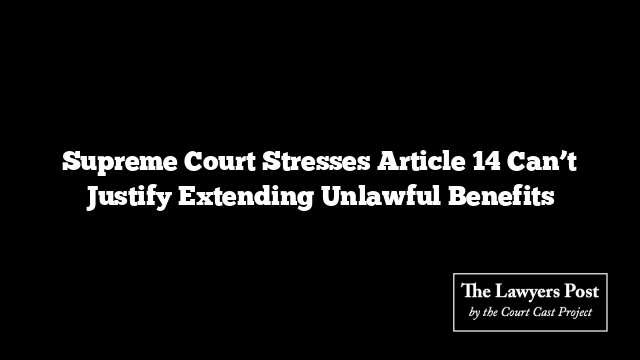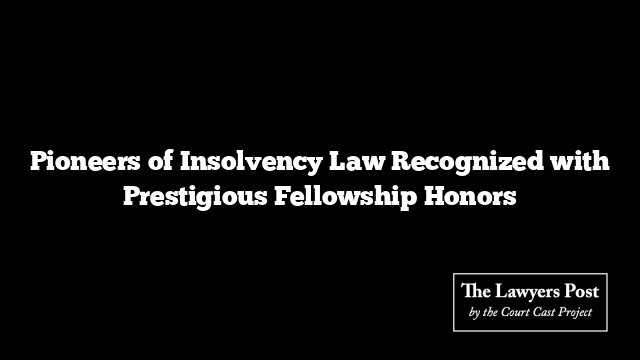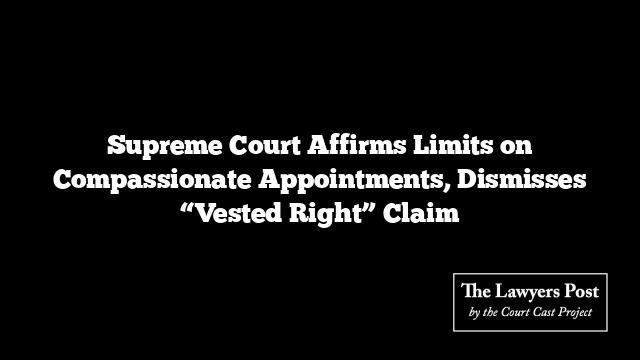The Supreme Court underscored a firm stance on Article 14, clarifying that the right to equality cannot be invoked to demand unlawful or unauthorized benefits merely because others may have received them. This ruling came as the Court denied a petitioner’s plea for a compassionate appointment after their application was dismissed under policy restrictions.
The bench, led by Justices Abhay S. Oka, Ahsanuddin Amanullah, and Augustine George Masih, addressed the case of a petitioner whose request was initially turned down by the Haryana government under a 1999 policy, which set a three-year window for such applications following an employee’s death. The petitioner argued that others in similar situations had been granted appointments despite missing this deadline.
The judgment, authored by Justice Masih, emphasized that equality under Article 14 is anchored in legality and cannot be leveraged to validate or repeat past policy violations. “If a benefit has been granted contrary to policy, this does not create a right for others to claim it under Article 14,” the Court ruled, reinforcing that equality does not mean replicating illegal or irregular benefits.
The Court further stated that upholding requests based solely on previous policy errors would erode justice and legal standards, effectively substituting equity for legality. The ruling concluded that equality is a positive, legally bound concept, and any attempt to distort it for personal claims would weaken the rule of law.





